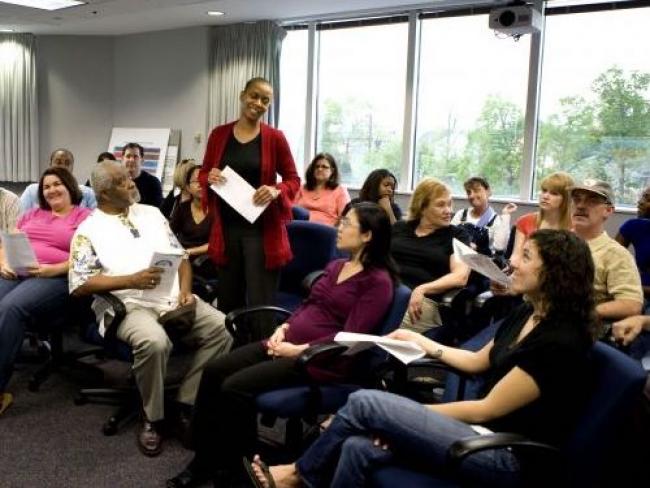Articles Menu

Jan. 6, 2022
Full Story: The Hill Times @TheHillTimes
A series of grassroot conversations in communities across Canada is building a picture of how a universal basic income can lay the groundwork for faster, deeper carbon cuts, by boosting local resilience and helping to ease uncertainties around the shift to a low-carbon economy.
“We know that it’s almost impossible to think about reducing emissions when you’re struggling just to make ends meet,” write The Energy Mix Publisher Mitchell Beer and Sheila Regehr, co-chair of the Basic Income Canada Network (BICN), in a recent op ed for The Hill Times. “But so far, there has been little coordinated effort to connect climate policy to the need for liveable incomes that ensure everyone has the basic capacity to navigate social, economic, and environmental transition.”
So Energy Mix Productions, BICN, and a group of national and local partners launched the Green Resilience Project to get those conversations started, with the support of Environment and Climate Change Canada’s Climate Action and Awareness Fund. The series of 35 local sessions runs through mid-February. And organizers are already hearing back from participants about how to “future proof” communities against the economic and environmental impacts of climate change, use deep engagement strategies to build common ground on climate solutions, and trace the impacts of the transition for individuals, industries, and the environment.
[With the majority of the community sessions still ahead, we’re looking forward to learning so much more. Bookmark the Green Resilience Project website and sign up for project updates to keep up—Ed]
In their Hill Times post, Beer and Regehr point to the connections between the job transition and local resilience issues at the centre of the climate agenda and the income security worries those conversations trigger in communities facing rapid change.
“The safety of communities across Canada depends on bold climate action,” they write. “But the shift to a low-carbon economy will mean big changes for all of us—changes that could affect how we live, work, get around, and more. That’s why it will only be possible with financial policies that can ease anxieties spurred by major change and the economic risk that accompanies it.”
With climate impacts accelerating from coast to coast to coast, and policy moving closer to a transition off future fuels, “we need community resilience to meet the challenges of climate change, and we need income security to build strong, healthy communities equipped with the tools they need to take action,” they add.
That makes basic income “the key to the climate plan Canada needs, easing uncertainty around the shift toward a low-carbon economy with new jobs and locally grounded community resilience. It can give communities the resources to make their own decisions about how to take action on climate change. And it can spark the excitement that’s needed to get wider public buy-in on all aspects of the net-zero transition.”
Thanks to Green Resilience Project Communications Manager Cecilia Stuart for developing the op ed behind this post.
[Top photo: Cade Martin, Dawn Arlotta, USCDCP/pixnio]